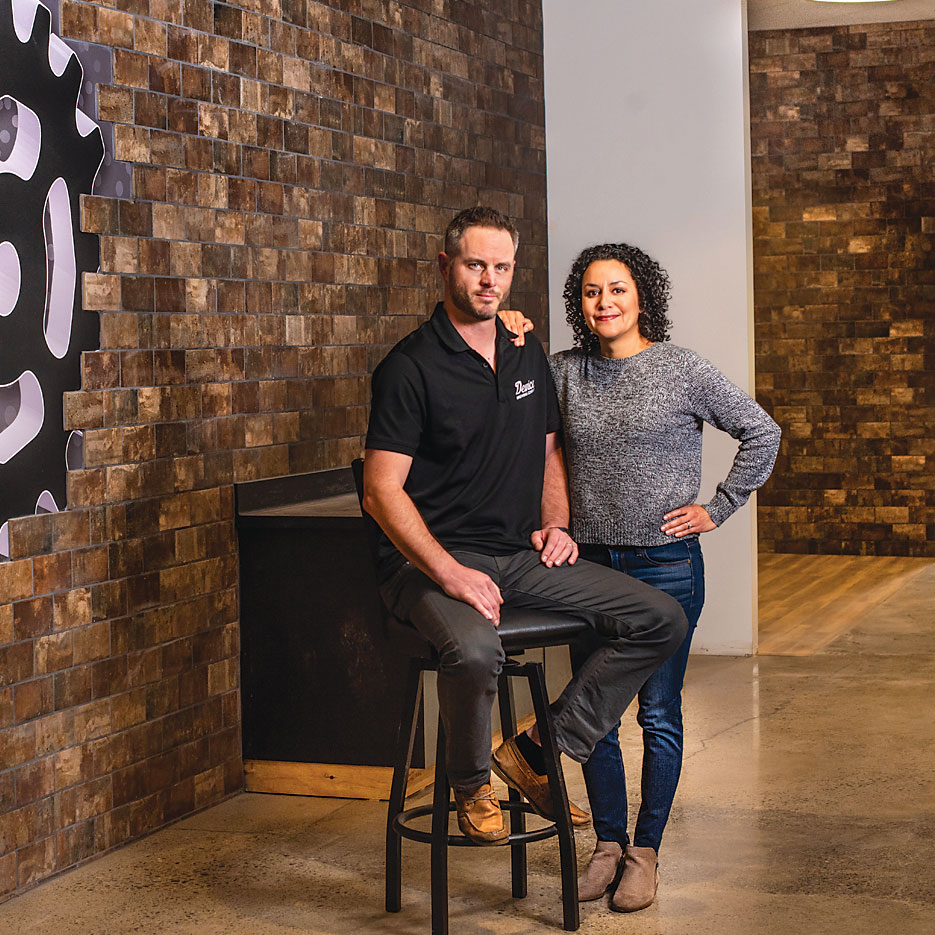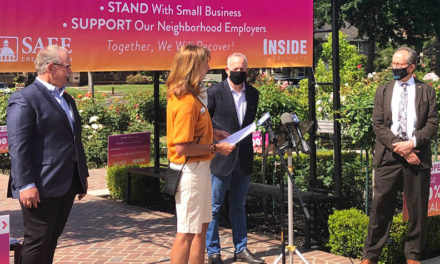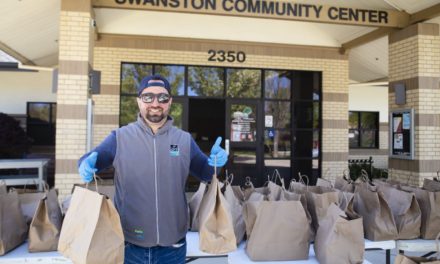Ken Anthony wasn’t among the global airline, hotel and casino companies that instantly lined up for taxpayer handouts when the coronavirus struck. He was too busy trying to keep his small business alive.
Anthony owns Device Brewing Company, which runs three taprooms in Sacramento, including a new restaurant in Pocket’s Promenade Shopping Center. Like countless small business operators, his life collapsed in mid-March, when Gov. Gavin Newsom and Sacramento County health officials closed public gathering places to slow the pandemic.

Unlike corporate titans such as Boeing, American Airlines and Marriott Hotels, Anthony didn’t command an army of lobbyists to beg for federal bailouts. He couldn’t count on handouts. He had to get creative.
This meant recalibrating his strengths and assets, and hoping the community would pitch in and help a local guy stay afloat.
“For the first week, we had a new business model every day,” Anthony says. “It’s kind of like being in an escape room. Somebody says, ‘Here you are. Here are the tools you’ve got to work with. Now go figure out how to survive.’”
When government authorities in Washington and Sacramento opted to sacrifice the economy in a gamble to save the nation’s health, they didn’t think about people such as Anthony.
But Anthony and Device are important—their story represents millions of small businesses that play by the rules, pay their taxes, employ tens of millions of workers and provided services enjoyed across communities large and small.
A structural engineer by training, Anthony gave up his career in 2013 and with wife Melissa opened his small Device brewery in the Power Inn Road industrial area near Tahoe Park. Five years later, they opened a Midtown taproom in the Ice Blocks. Their most ambitious location followed this year in Pocket.
When the coronavirus struck, Device brews were a success—available in more than 1,000 retail locations from Bakersfield to Chico.
Like most small businesses, Device represents more than just a brewery. The taprooms serve as gathering places for the community, a welcoming location for fellowship and conviviality.
In the Promenade center, Device became an instant landmark of community pride. The restaurant enhanced the revitalization of a neighborhood shopping center that languished for years with empty storefronts after the Great Recession.
Then came mid-March and the COVID-19 crisis. Anthony realized there was no roadmap or precedent for managing an overnight economic collapse. There was no way to estimate how long public prohibitions would continue. There was no help. He was on his own.
“On one level, it’s exciting to have to figure this out, but it’s extremely concerning to have to suddenly figure out how to survive,” he says. “We have to come up with a business plan that’s entirely new and legal. And it’s not like we’re working on strategies for the next couple of months. Our model has changed. This is forever, until we hear different.”
Device sells craft beer, an important commodity for many adults and highly regulated. Unique state licenses are required for commercial brewing, wholesale and retail sales, on-premises consumption and off. Anthony holds multiple licenses and was quick to brainstorm ways to leverage his position.
“We want to be as creative as possible to meet the needs of our customers and keep everybody safe and stay within the rules,” he says.
The first move was to make craft beer available for take-away. Device encourages customers to visit and take home growlers, six packs or even kegs. Coincidentally, more people are running home draft beer delivery systems with kegerators. Device offers delivery of 100-pound half-barrels and smaller kegs to residents within neighborhood boundaries of the taprooms. Device also produces take-away meals in Pocket.
Ultimately, creativity can’t save the day without help. Anthony needs the community to recognize the importance of supporting small businesses, now more than ever. There are no corporate bailouts for the local independent operator.
“At this point, our survival depends on the willingness of our customers to support us,” he says. “That’s always been the case in a general sense, but today it’s far more intense. If people want us to survive, they will give us their business during this crisis. Then we will come out OK. If they don’t, we won’t survive.”
R.E. Graswich can be reached at regraswich@icloud.com. Previous columns can be found and shared at the all-new InsideSacramento.com. Follow us on Facebook, Twitter and Instagram: @insidesacramento.

















